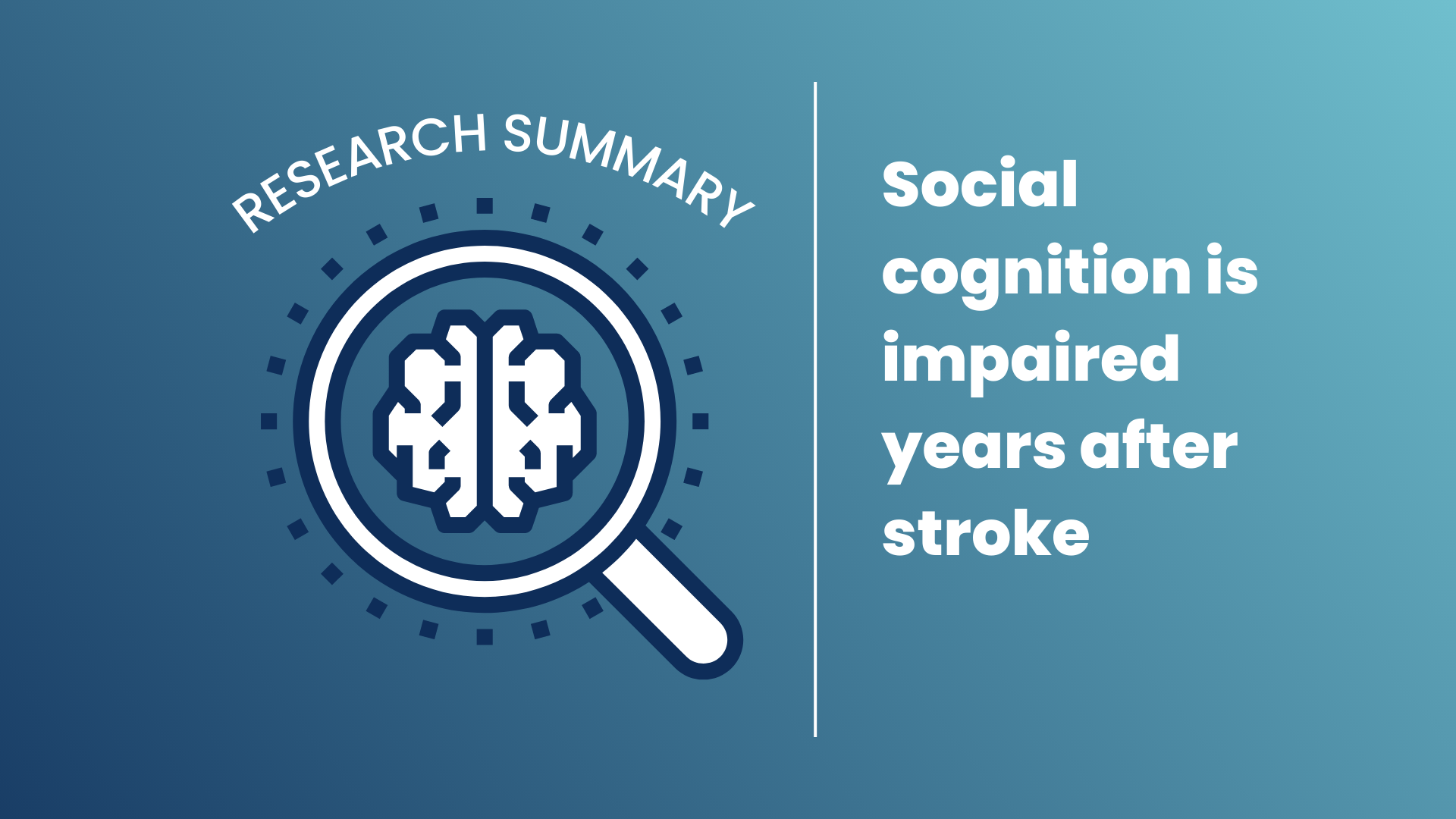
A Little Goes A Long Way
Your gift today is an investment in BrainTrust services that improve the lives of those with brain injury.
Donate Today


Social Cognition = the capacity to process social information
Social cognition is consists of four processes:
(1) Emotion recognition – i.e., identify and discriminate (tell the difference between) the emotional states of others
(2) Theory of Mind (ToM) – i.e., infer/predict the beliefs/intentions of others and understand that others have beliefs, intentions, and perspectives that are different from one’s own
(3) Empathy – i.e., recognize that other people’s emotions are linked to one’s own emotional experience
(4) Behaviour regulation & inhibition – i.e., monitoring, controlling, and inhibition of your behaviours, emotions, or thoughts in order to adapt to a situation
Past research on social cognition:
Main research question: To what degree is social cognition impaired in stroke patients in the long-term?
Secondary research questions:
Recruited 148 stroke patients from 6 hospitals in the Netherlands
Also recruited a similar-aged group of healthy people without stroke (compare stroke group to healthy control group to make comparisons)
Assessment 1 (4-days post-stroke): Demographic information, stroke-related factors (side of brain affected, severity of stroke)
Assessment 2 (3-4 years after stroke): Neuropsychological assessment
Social Cognition Impairments
Relationship Between Social Cognition and General Cognition
Influence of Demographic and Stroke-Related Factors on Social Cognition
Overall, social cognition is impaired in the long-term after stroke
Effect sizes in this study were small: This means the stroke group had slightly lower scores on the tests of social cognition compared to the healthy control group
Future research should explore…
We know that many people with stroke continue to receive supports in the community once discharged from the hospital and may deal with persisting symptoms for years
Source:
Nijsse, B., Spikman, J. M., Visser-Meily, J. M., de Kort, P. L., & van Heugten, C. M. (2019). Social cognition impairments in the long term post stroke. Archives of Physical Medicine and Rehabilitation, 100(7), 1300-1307.
https://doi.org/10.1016/j.apmr.2019.01.023
We summarize a recently published research study every week to give you current, evidence-based brain injury information.